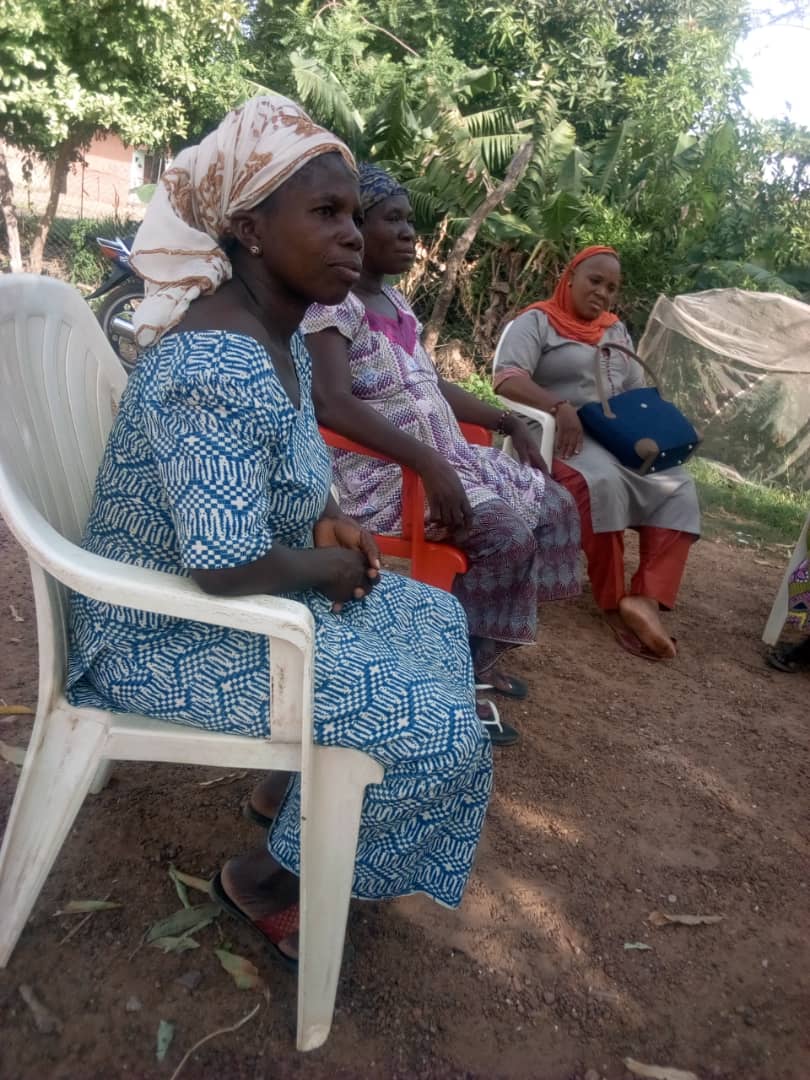Mali
Project Overview
A community development project which aims to improve the health and well-being of community members, particularly survivors of abuse and those with high vulnerability to abuse. The program seeks community-wide cultural and behavioural change that will improve the lives of community members, thereby improving the overall health and stability of the community.
Location
Located in the Bamako region, Mali. Training sessions and radio broadcasting reach into the surrounding geographical area as well.
Project Start & Partners
CRWRF has been supporting the project since 2007. Since 2012, this project is done in partnership with World Renew (Mali) and the Mali Christian Women’s Association (AMAFEP). CRWRF contributes about half of the funding for the program costs.
Project Details
The first phases focused on promoting women’s health and preventing sexual abuse within the Malian churches. Over time, the project has developed and changed based on lessons learned and new areas of concern as identified through project evaluations. The project is currently in its fifth phase (2020-2023), and now the focus is on women’s health, abuse prevention, and Christian family life.
The program seeks community-wide cultural and behaviour change by
- promoting good communication between partners and children, and between spouses,
- equipping the church, parents and children to prevent and stop abuse and protect survivors,
- engaging in habits and behaviours that promote health and healthy relationships, and
- understanding abuse and harassment complaint mechanisms for survivors and finding ways to support them in collaboration with lawyers and human rights institutions working in Mali.
AMAFEP has facilitators who lead training sessions in churches and schools in the area. Trainings include the following programs:
- Children and Youth: Problems of pedophilia and harassment of young girls are a reality in Mali. Through these programs, children aged 5 to 17 are encouraged to speak out about their experiences in a safe environment and are educated on how to recognize a good touch vs. a bad touch, say “no” to sexual harassment, and understand the changes in one’s body during puberty. Older children and youth learn how to respond to harassment and resist sexual temptation, learn about reproductive health, the consequences of abortion, HIV and AIDS, and also about hygiene and the impacts of social media. As a result of the training, children and youth are less afraid to talk to their parents and are better able to ask about taboo subjects
- Married Couples: Work is being done to improve the relationships between husband and wife (e.g. by better communication, respect for one other, addressing domestic violence, understanding the roles and responsibilities of husband and wife, and managing finances) and between parents and their children (e.g. discipline, open communication). Some of these training events have even been televised. The results have been that men are more open with their wives and have even started praying with them. Parents are becoming more patient with each other and their children.
- Mother/Daughter Events: A special event is held every year on Malian Independence Day for mothers and daughters to gather together to share.
- Mothers: This program focuses not only on the complex consequences of child abuse, but also on the importance of communicating with children about these issues. After the training, the women know how to establish an environment that is conducive to child safety; teach children to protect themselves and to expose abuse; and talk about sexuality.
- Orphan Support: Orphans (usually girls) sometimes suffer from bullying by their stepmothers. This program provides support for those coping with the loss of their mothers and their fathers’ remarriages.
- Training for Leaders: Every quarter World Renew organizes continuing education sessions for the trainers, bringing in doctors, Christian therapists, and other specialists. Most recently, a psychiatrist was asked to lead a session on recognizing abuse, steps to report abuse, etc. The programs have not only had immediate impact on the participants but have impacted the broader community as well. Many have reported that they have talked to their non-Christian friends and neighbors about what they learned in the training. Many people have invited non-Christian friends to the training.
About 60 local churches are involved in the training events, and in 2020 over 6,000 people were reached.
Highlights |
Challenges |
|
Training sessions: Over 100 training events reaching ~6,000 people annually Publications: An FAQ booklet, Our Children in Danger, and Cry of a Woman’s Heart - three resources that help the participants to talk about the issues they face in their own life. Radio programs: Starting in 2021, programs were produced and broadcast addressing different topics such as excision, family violence, relationships with in-laws, women and sexual harassment, etc. |
Cultural views which come up against Biblical views and cause tension. Difficult cases of abuse have been discovered, requiring careful psychiatric and counselling care. Finding access to good psychiatric and legal services when needed. Walking alongside individuals in abusive relationships who cannot escape due to financial or other reasons. |
How can you support this project?
Support the women and children by emailing Marise Veldman at westafrica@crwrf.ca or donating here.
Pray that men and women might come to understand the truths of the gospel, which have practical outworking in the way they raise their children and treat their spouses.
Pray that children might learn the value of dignity and love themselves and others
Pray that couples might grow together and improve their relationships and grow to help and support each other.
Pray that individuals who’ve experienced abuse might receive proper care, and that God will reign over their healing and provide protection.
